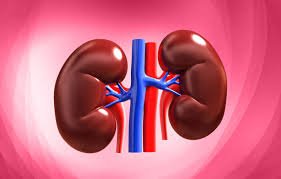Takeda’s Mezagitamab Shows Sustained Kidney Function and Proteinuria Reduction Through 18-Month Follow-Up in IgA Nephropathy
10 November 2025 | Monday | News

Image Source : Public Domain
Phase 1b, Open-Label Study Follow Up Shows Stable Kidney Function (eGFR) in Patients Treated with Investigational Mezagitamab Through Week 96 – 18 Months After Last Dose
− Rapid Reductions in Proteinuria and Serum Gd-IgA1 Levels Were Sustained Through Week 961
− No Serious Adverse Events or Opportunistic Infections Were Observed Through Week 961
− Takeda Initiated Pivotal Phase 3 Clinical Trials Evaluating Mezagitamab in Primary IgA Nephropathy and Immune Thrombocytopenia with Patient Enrollment Ongoing
Takeda announced new interim data from the Phase 1b, open-label, proof-of-concept study of subcutaneous mezagitamab (TAK-079), an anti-CD38 monoclonal antibody with disease-modifying potential, in primary immunoglobulin A (IgA) nephropathy. Data from the study showed that kidney function (eGFR) remained stable in patients with IgA nephropathy through Week 96 – up to 18 months after the last mezagitamab dose.1 The results were presented at the American Society of Nephrology (ASN) Kidney Week 2025 in Houston.
IgA nephropathy is a lifelong progressive autoimmune disease often diagnosed in young people aged 10-30 years old that causes irreversible damage to the kidney function.2 It has no cure, and despite available treatments, approximately one in five patients experience renal failure within 10 years of diagnosis.3 By depleting cells that produce an abnormal protein called Gd-IgA1 implicated in the pathogenesis, mezagitamab targets early steps in the process leading to disease in IgA nephropathy.
“Mezagitamab targeted the underlying immune mechanisms of IgA nephropathy, with data showing that kidney function remained stable in patients after the last dose of treatment,” said Prof. Jonathan Barratt, M.D., Ph.D., principal investigator for the Phase 1b study and the presenting author. “This is especially critical given the progressive and often silent nature of the disease, with many patients already experiencing some degree of kidney damage by the time they’re diagnosed. Without effective intervention, the risk of renal failure – and the need for dialysis or transplant – remains alarmingly high.”
In the study, 17 patients with IgA nephropathy were treated with mezagitamab as an add-on to stable background therapy, and 13 patients continued into the long-term follow-up period. At Week 96 – 18 months after the last dose – kidney function remained stable (mean change in eGFR from baseline +2.5; 95% CI: −1.8, +7.6; n=12) and patients sustained a 55.2% (95% CI: 30.2, 72.6; n=13) mean reduction in proteinuria (protein in the urine) measured using a urine protein-creatinine ratio (UPCR).1 Sustained reductions of 50.1% in Gd-IgA1 and complete recovery toward baseline in IgG were observed by Week 96.1 Hematuria (blood in the urine) was resolved in 60% of patients by Week 96.1
In this study, mezagitamab was generally well tolerated with no new safety concerns identified. No serious adverse events (AEs), including no serious hypersensitivity or injection-related reactions, discontinuations due to AEs, opportunistic infections or grade ≥3 infections were reported.1
“These promising data reinforce our belief in the potential of mezagitamab to redefine how autoimmune diseases like IgA nephropathy are treated – by targeting their root cause,” said Obi Umeh, M.D., M.Sc., Vice President, Franchise Global Program Leader at Takeda. “With patient enrollment ongoing in our Phase 3 trials investigating mezagitamab in IgA nephropathy and immune thrombocytopenia, we are excited to advance these promising programs and remain committed to bringing innovative solutions to patients with high unmet need.”
Mezagitamab is currently in Phase 3 clinical development for the treatment of both primary IgA nephropathy (NCT06963827) and chronic immune thrombocytopenia (NCT06722235) with the first patients now enrolled. In October 2025, mezagitamab was granted Orphan Drug Designation by the European Medicines Agency for the treatment of primary IgA nephropathy. In August 2025, mezagitamab was granted Breakthrough Therapy Designation by the U.S. Food and Drug Administration for the treatment of adult patients with chronic immune thrombocytopenia who have had an insufficient response to previous treatment. Takeda is assessing additional indications for mezagitamab.
Most Read
- How Does GLP-1 Work?
- Innovations In Magnetic Resonance Imaging Introduced By United Imaging
- Management of Relapsed/Refractory Multiple Myeloma
- 2025 Drug Approvals, Decoded: What Every Biopharma Leader Needs to Know
- BioPharma Manufacturing Resilience: Lessons From Capacity Expansion and Supply Chain Resets from 2025
- APAC Biopharma Review 2025: Innovation, Investment, and Influence on the Global Stage
- Top 25 Biotech Innovations Redefining Health And Planet In 2025
- How Health Systems Are Reshaping Drug Adoption, Partner Models, and Market Access in 2026
- The New AI Gold Rush: Western Pharma’s Billion-Dollar Bet on Chinese Biotech
- Single-Use Systems Are Rewiring Biopharma Manufacturing
- The State of Biotech and Life Science Jobs in Asia Pacific – 2025
- Asia-Pacific Leads the Charge: Latest Global BioSupplier Technologies of 2025
- Invisible Threats, Visible Risks: How the Nitrosamine Crisis Reshaped Asia’s Pharmaceutical Quality Landscape
Bio Jobs
- Sanofi Turns The Page As Belén Garijo Steps In And Paul Hudson Steps Out
- Global Survey Reveals Nearly 40% of Employees Facing Fertility Challenges Consider Leaving Their Jobs
- BioMed X and AbbVie Begin Global Search for Bold Neuroscience Talent To Decode the Biology of Anhedonia
- Thermo Fisher Expands Bengaluru R&D Centre to Advance Antibody Innovation and Strengthen India’s Life Sciences Ecosystem
- Accord Plasma (Intas Group) Acquires Prothya Biosolutions to Expand Global Plasma Capabilities
- ACG Announces $200 Million Investment to Establish First U.S. Capsule Manufacturing Facility in Atlanta
- AstraZeneca Invests $4.5 Billion to Build Advanced Manufacturing Facility in Virginia, Expanding U.S. Medicine Production
News











